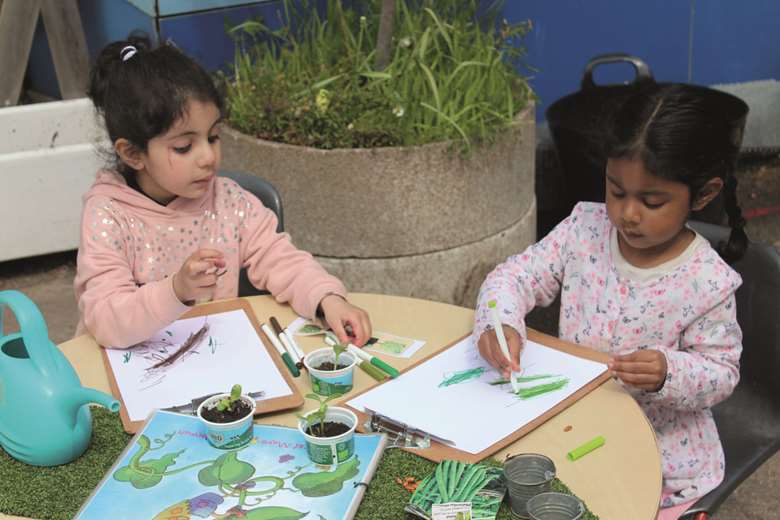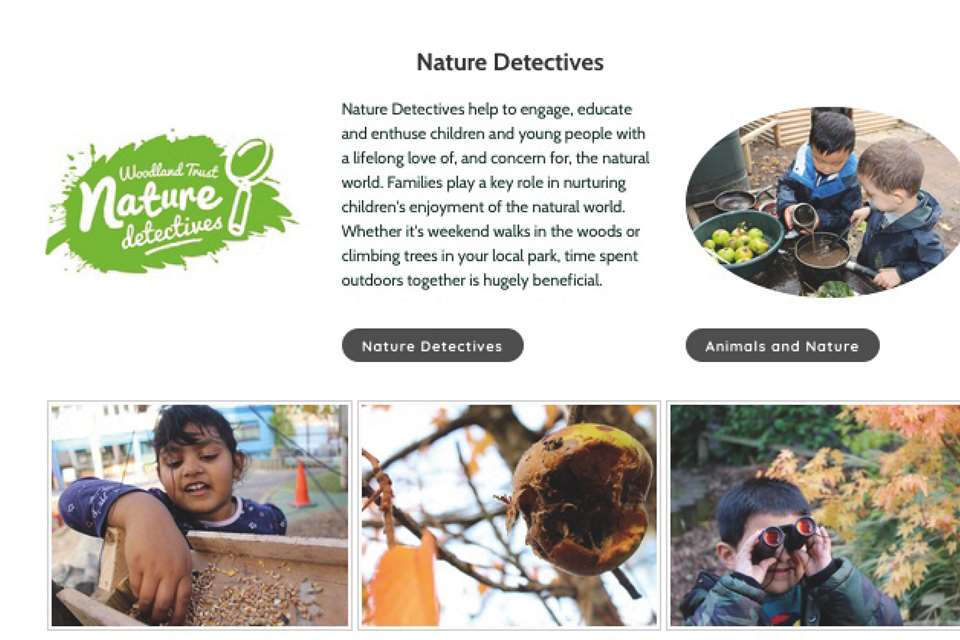EYFS Activities - An A to Z of learning: Q is for…questioning
the Rachel Keeling Nursery School team
Tuesday, August 3, 2021
Asking questions about the natural world during lively learning activities helps to spark children’s curiosity. By the Rachel Keeling Nursery School team

Rachel Keeling Nursery School
One of the dispositions we aim to develop in our children is curiosity. Some are naturally inquisitive, while others need encouragement.
A few years ago, we carried out a self-assessment audit looking at children’s curiosity and language. We were surprised that we didn’t hear many children asking questions. In response to this, we set about reflecting on our provision, discussing ‘hot spots’ for communication and curiosity.
BEING INQUISITIVE
We know that children need to feel secure, safe and confident to begin exploring and being inquisitive. So, when children start at Rachel Keeling, we make sure they are greeted with warmth and love.
We have routines that children can easily fit into and our rules are carefully worded. For example, instead of saying to a child who is climbing on the piano, ‘Don’t climb indoors!’, staff may suggest, ‘Let’s climb outside on the tree.’
SPARKING CURIOSITY
Our entire environment is set up to spark curiosity. Children have access to natural materials across the nursery because these are interesting and can be used in a variety of ways. For example, in the home corner, we have beautiful shells, conkers, pine cones and slices of wood that are beautiful to touch, look at and smell.
EXCITING EXPERIENCES
We make sure children access meaningful, first-hand, exciting experiences. We sometimes sabotage experiences so children have to ask questions and communicate. For example, by not leaving enough teaspoons out for tea, having the paint palette just out of reach or getting children to ask each other for help when they come to an adult.

AWE AND WONDER
The awe and wonder of the natural world also provides so many opportunities for discussion. The natural rhythm of the seasons is rich with learning and taps into what children can see, hear, smell and taste. This builds vocabulary and enables children to ask questions.
ADULT ROLE
Adults play a vital role in this. The adults in Rachel Keeling will model talk throughout the day. We often ‘think aloud’ to encourage children to notice the thinking process; for example: ‘I wonder where the water from the water butt has gone?’, or ‘Oh dear, we haven’t got enough reading books in Rose Class.’
We ask children questions, but we are mindful not to ask too many. Open-ended questions can be effective while children are cooking or making woodwork models. We narrate play alongside children, but sometimes we allow quiet periods so children can think, process and talk. We ensure that staff are available, listening and knowing when to offer support or scaffold thinking.
CHILDREN IN CHARGE
Mini projects where the children take the lead have been most useful. We start new projects by pooling our ideas on a large piece of paper.
For example, if we have a delivery of eggs, we may ask children, ‘What do we know about eggs?’, and we note their talk, statements and ideas. Then we ask if there is anything they want to know, again, noting it down. Finally we come up with a ‘big question’. For example, ‘Why are eggs that shape?’ And we then set about researching it together.
QUESTIONING MINDS
Learning opportunities that have provided rich talk and encouraged children to ask questions include:
- Mud kitchen – creating potions.
- Cooking, preparing snacks and baking.
- Creating floor books together.
- Collating an Animal Encyclopedia together.
- Woodwork design projects.
- Bag-making projects.
- Finding a dead frog and carefully dissecting it.
- Noticing the moon is visible during the day.
- Deciding how a sparrow that was discovered in our garden died.
IN RESPONSE
When we repeated the self-assessment audit, we noticed some significant improvements. Children were using more language and specifically asking questions. We have also found that children will use the ‘research model’ of formulating questions with support, and some children have even done this independently.
Rachel Keeling Nursery School is an Outstanding setting in Bethnal Green, east London
Download Now









